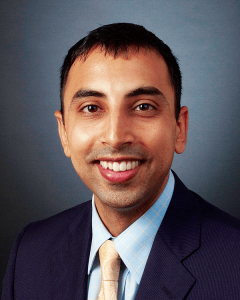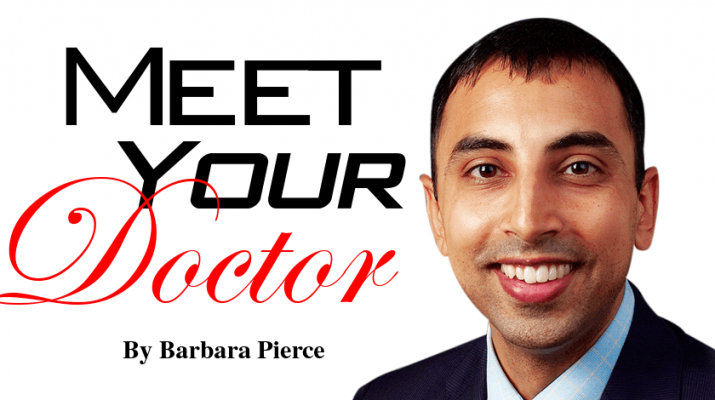Dr. Sumeet Makhijani, a plastic and reconstruction surgeon, is part of Bassett Healthcare Network’s team of board-certified plastic surgeons. He helps to provide advanced care in reconstructive, cosmetic, and hand and wound care surgery, specialties considered rare in a rural setting.

By Barbara Pierce
Q.: You do general plastic surgery, which involves cosmetic surgery and reconstructive surgery. Can you tell us the difference?
A.: Cosmetic surgeries are those we often see on television. This can involve cosmetic surgery for the breasts, face, abdomen, or body. An example is breast augmentation or a tummy tuck.
The remaining types of plastic surgery fall typically under the reconstructive surgery category. This would include injuries (check for hiring an attorney for your injuries claims from here) to the hand or face typically, or skin cancer treatments, or a number of other types of defects that may require a plastic surgeon.
Q.: Do you have a special interest or passion for any particular type of plastic surgery?
A.: I do have an interest in treating skin cancer by excising skin cancer. Also, I oftentimes perform reconstruction involving skin grafts or rearranging skin in the local area of the defect.
Q.: Are there specific surgeries in which you specialize?
A.: I specialize in breast reductions, skin cancer treatments, and general plastic surgery.
Q.: How did you become interested in plastic surgery?
A.: When I was a medical student, I had the opportunity to work at the M.D. Anderson Cancer Center in Houston, Texas. I worked for three months with the plastic surgeons at that institution and that is what really sparked my interest in plastic surgery as a young medical student.
Q.: You specialize in cosmetic, plastic, and reconstructive surgery, which covers a very diverse field. What kind of training did you have to prepare you for this broad career?
A.: My residency was in integrated plastic surgery that generally requires seven years of residency after medical school.
However, I went directly into plastic surgery after medical school to save two years of training so that I could become a plastic surgeon. I did three years of general surgery followed by three years of plastic surgery.
I do all three types of plastic surgery: cosmetic, general plastic and reconstruction.
Q.: How would you define the mission of your career as a plastic and reconstruction surgeon?
A.: The mission of my career is to improve the lives of those who need reconstructive surgery, whether that be hand injuries, skin cancer or chronic conditions that I am able to help in a surgical fashion.
Q.: What issues and challenges are you faced with?
A.: There are many challenges that we face in our practice. Often this could be something such as social issues — for example, a patient who does not have the resources to even come to appointments with us. Other issues include patients that may not have the support system they need around them for a successful recovery.
A support system during the recovery period is important as a person may have physical limitations and needs the help of others. Beyond the physical impact surgery has on your body, it can also affect you mentally and emotionally.
Having support throughout your recovery can help relieve any built-up emotional stress, as well as provide extra motivation if the recovery process seems too difficult or too long.
Another challenge is patients who are chronically ill from other issues, such as diabetes, hypertension, or heart disease. This can affect their healing for the surgery that they need with me.
The complications of these diseases can make for unfavorable outcomes from surgery.
Q.: You are an assistant professor at Columbia University School of Medicine. What are some of the things future physicians need to learn?
A.: Medicine is constantly changing. A career that seems hot today may be cold tomorrow. Therefore, future physicians need to choose a career in medicine that they’re passionate about, and in which they feel they’ll be happy performing for the rest of their lives.
Q.: What else would you like people to know about you?
A.: I have been serving the Mohawk Valley for the last eight years and I really enjoy taking care of patients in this region. There are a lot of fantastic patients that I have come across in my time working at Little Falls Hospital and Bassett Hospital. I truly enjoy taking care of such nice patients.
Looking for a plastic surgeon? Click here for breast augmentation surgeons directory.
Lifelines
Birth year: 1979
Birthplace: Chattanooga, Tenn.
Current residence: Cooperstown
Education: Bachelor of Science degree, Creighton University, Omaha, Neb.; medical degree, University of Tennessee College of Medicine; residency, Albany Medical Center
Affiliations: Bassett Hospital, Little Falls Hospital
Hobbies: Tennis, cooking plant-based meals, reading, snowboarding, construction

